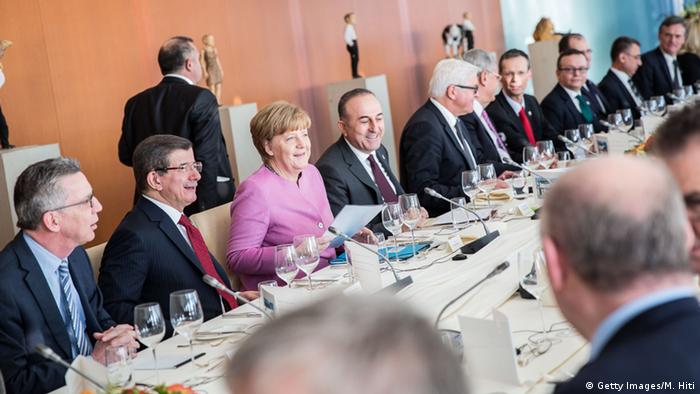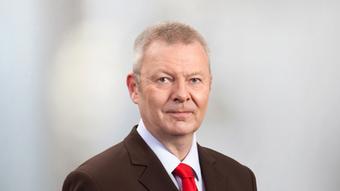TURKEY
Opinion: Pure national interests
"Help me with my refugee policies and I will give you money and – at last - attention": Angela Merkel and Turkish Prime Minister Ahmet Davutoglu staged a true piece of realpolitik in Berlin, writes DW's Jens Thurau.
The red carpet was rolled out in grand fashion for the Turkish government in Berlin. Angela Merkel received not only her Turkish counterpart, Davutoglu, but his key ministers as well. She herself had brought along the vice chancellor, foreign minister and other Cabinet members. This kind of gathering is known as "intergovernmental consultations" - Germany holds them only with ten other nations. They need not be close friends: such major meetings take place with China, India and Russia, but not with the US. But one thing is always a given: with intergovernment consultations, clear interests are at stake.
Merkel is dependent on Turkey
Angela Merkel has always regarded Turkey with skepticism. The new Islamic nationalism headed by Erdogan is alien to her. She know about human rights violations, the muzzling of journalists and harsh action against Kurds in southeastern Turkey. However, she also knows that 2016 might become the most important year in her 11 years so far as chancellor; she must resolve the refugee crisis, which has been weighing down on her domestically like no other issue. And Turkey plays a key role here.
Only Turkey can help to significantly reduce the number of refugees traveling to Europe, especially from Syria. A few weeks ago, EU countries promised Turkey 3 billion euros for its help in doing this. In an interview, Prime Minister Davutoglu unashamedly asked for even more money. He did not repeat his demand in the chancellor's presence; there was no need to, as it was already known. So far, Ankara has seen no money to build refugee shelters and improve border patrols – that is how paralyzed the EU is at the moment.
Turkey wants to be taken seriously
Interestingly enough, no one at the press conference mentioned the shelved EU accession talks between the EU and Turkey. The chancellor at least touched on the Turkish military's crackdown on the Kurds in the southeastern part of the country - but only in passing. Instead, Davutoglu was allowed to elaborate on how closely Turkey stood at Germany's side in the fight against "IS" terrorism. That probably is true at the moment, especially after the horrific terrorist attacks in recent weeks, but it was different just a few months ago. Then, the Kurds were Ankara's main enemy.
It is evident that Turkey wants recognition from Europe; the country is calling to be taken seriously. This comes about under the pressure of the many refugees. And for Merkel, Ankara is a decisive factor in these fateful weeks of her chancellorship. That's what one calls interest-driven politics - on both sides.
Have something to say? Add your comments below. The thread to this editorial closes in 24 hours.



No comments:
Post a Comment